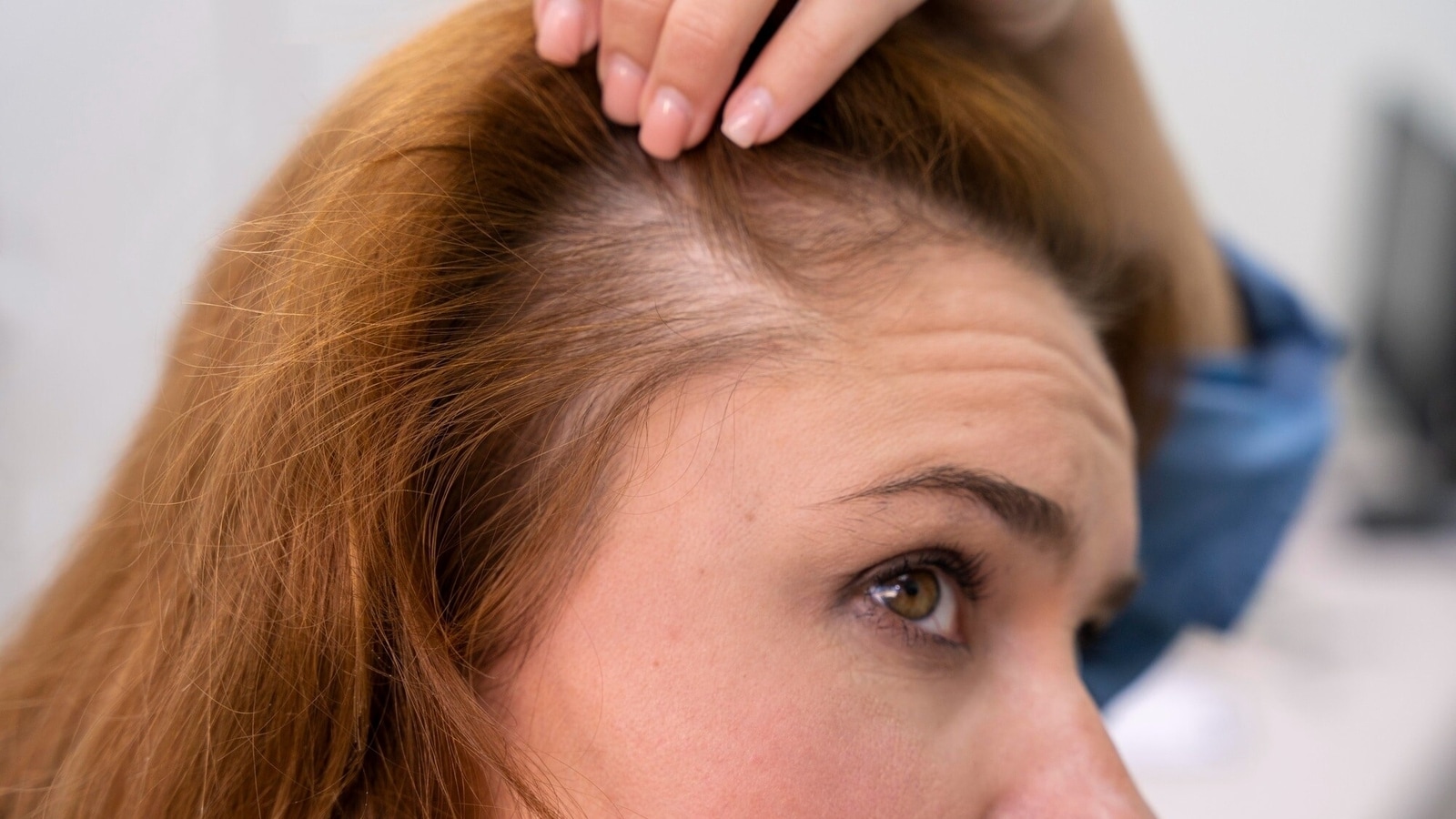Lifestyle
Sudden Hair Loss? Dermatologist Highlights Conditions to Watch

Sudden hair loss or thinning can be alarming and may indicate significant underlying health issues. While it is common for hair to shed as part of its natural growth cycle, excessive hair loss can be a sign of conditions such as alopecia. This disorder affects millions globally each year and can occur at any age, often related to genetic factors, lifestyle habits, or other health conditions.
In a recent interview with HT Lifestyle, Dr. Amrutha Hosalli Karjol, a consultant and chief dermatologist at Vrudhii Skin Center and Surgery Clinic in Bengaluru, emphasized the importance of recognizing sudden changes in hair health. She noted, “While some hair shedding is normal, sudden or excessive hair fall can be distressing and may indicate the need for medical attention. Early recognition and timely management are crucial in preventing long-term damage to hair follicles and restoring confidence.”
Conditions Triggering Sudden Hair Loss
Certain medical conditions can exacerbate or trigger alopecia. Dr. Karjol outlined three common causes that require immediate attention:
1. Hormonal Imbalances and Endocrine Disorders
Hormonal fluctuations, especially those associated with thyroid disorders or conditions like Polycystic Ovary Syndrome (PCOS), can disrupt the hair growth cycle. In women, increased levels of androgens may weaken hair follicles, leading to noticeable thinning at the crown or a widening hair part.
2. Autoimmune and Inflammatory Conditions
Autoimmune diseases, such as alopecia areata and lupus, can cause the immune system to attack healthy hair follicles. This often results in sudden, patchy hair loss affecting the scalp, beard, or other areas of the body. Additionally, inflammation from conditions like seborrheic dermatitis or psoriasis may aggravate hair loss.
3. Post-Illness and Nutritional Deficiencies
Severe illnesses, high fevers, or post-viral conditions—including COVID-19—can lead to a condition known as telogen effluvium, where hair prematurely enters the shedding phase. Furthermore, inadequate intake of essential nutrients, including proteins, iron, and vitamin D, can weaken hair structure, increasing its susceptibility to breakage and loss.
Dr. Karjol advocates for awareness of these factors to prompt timely consultations with healthcare providers.
Seeking Medical Advice
If you are experiencing sudden hair loss, it is crucial not to overlook these symptoms. Consulting with a dermatologist can provide clarity and a tailored approach to treatment. While some hair loss may be benign, understanding the potential medical causes can facilitate early intervention, ultimately preserving hair health and enhancing personal well-being.
This article serves as an informational resource and should not replace professional medical advice. Individuals with concerns about their health should always consult their doctor to address specific medical conditions.
-

 World5 months ago
World5 months agoSBI Announces QIP Floor Price at ₹811.05 Per Share
-

 Lifestyle5 months ago
Lifestyle5 months agoCept Unveils ₹3.1 Crore Urban Mobility Plan for Sustainable Growth
-

 Science4 months ago
Science4 months agoNew Blood Group Discovered in South Indian Woman at Rotary Centre
-

 World5 months ago
World5 months agoTorrential Rains Cause Flash Flooding in New York and New Jersey
-

 Top Stories5 months ago
Top Stories5 months agoKonkani Cultural Organisation to Host Pearl Jubilee in Abu Dhabi
-

 Sports4 months ago
Sports4 months agoBroad Advocates for Bowling Change Ahead of Final Test Against India
-

 Science5 months ago
Science5 months agoNothing Headphone 1 Review: A Bold Contender in Audio Design
-

 Top Stories5 months ago
Top Stories5 months agoAir India Crash Investigation Highlights Boeing Fuel Switch Concerns
-

 Business5 months ago
Business5 months agoIndian Stock Market Rebounds: Sensex and Nifty Rise After Four-Day Decline
-

 Sports4 months ago
Sports4 months agoCristian Totti Retires at 19: Pressure of Fame Takes Toll
-

 Politics5 months ago
Politics5 months agoAbandoned Doberman Finds New Home After Journey to Prague
-

 Top Stories5 months ago
Top Stories5 months agoPatna Bank Manager Abhishek Varun Found Dead in Well









